It is not uncommon for car owners to remove the ABS and replace it with an aftermarket part. But some people remove it for reasons like being tired of the noise or feeling it isn't needed. We have researched this topic to see if the removal is justified or not. Let's dive right in!
There are two ways you can remove your car's ABS. First, physically remove the entire ABS or the yaw sensor. Second, you can also disable the ABS without removing the ABS itself by pulling out its fuse.
You'll find the fuse box somewhere in the engine compartment. Always check your car's manual for fuse box location, as some vehicles have different fuse boxes than others.
It is important to know that removing ABS is illegal. So, if you think of removing ABS, you may need to rethink that decision. We are also here to tell you about all the pros and cons of ABS removal so you can decide whether or not to do it, so read on!
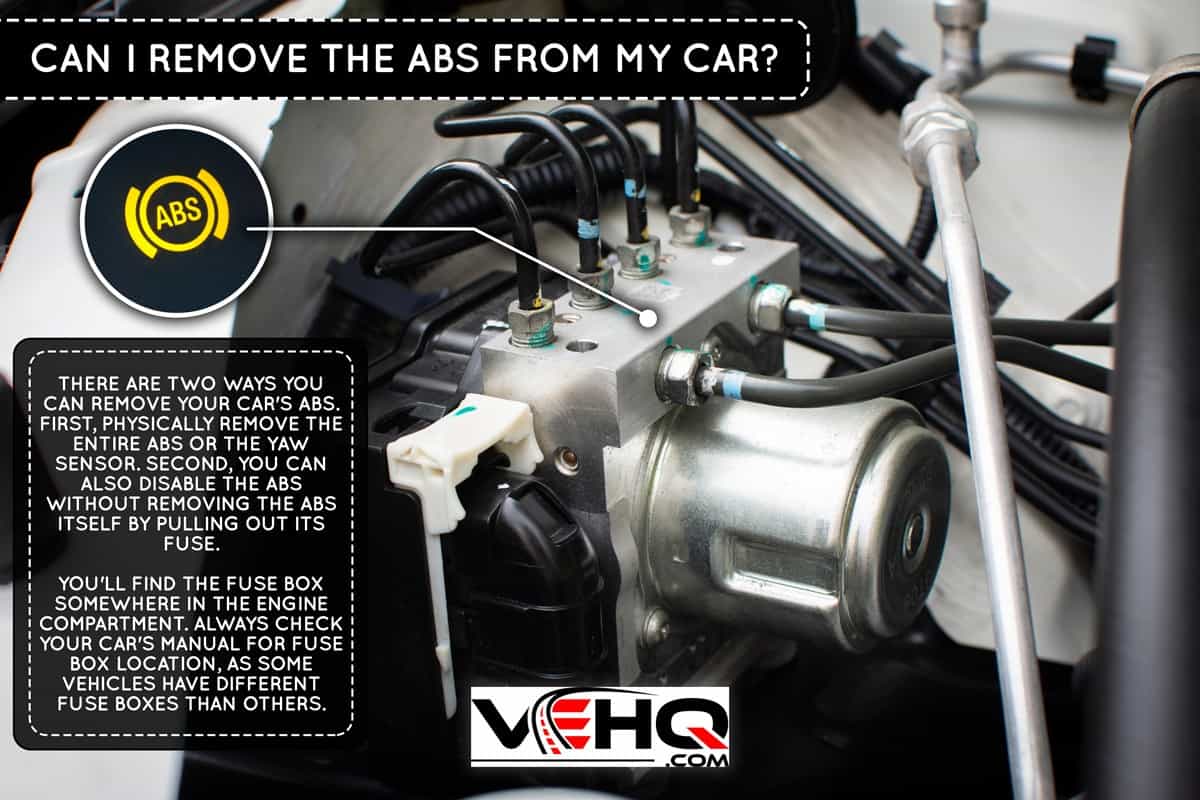
What Is The ABS System In A Car?
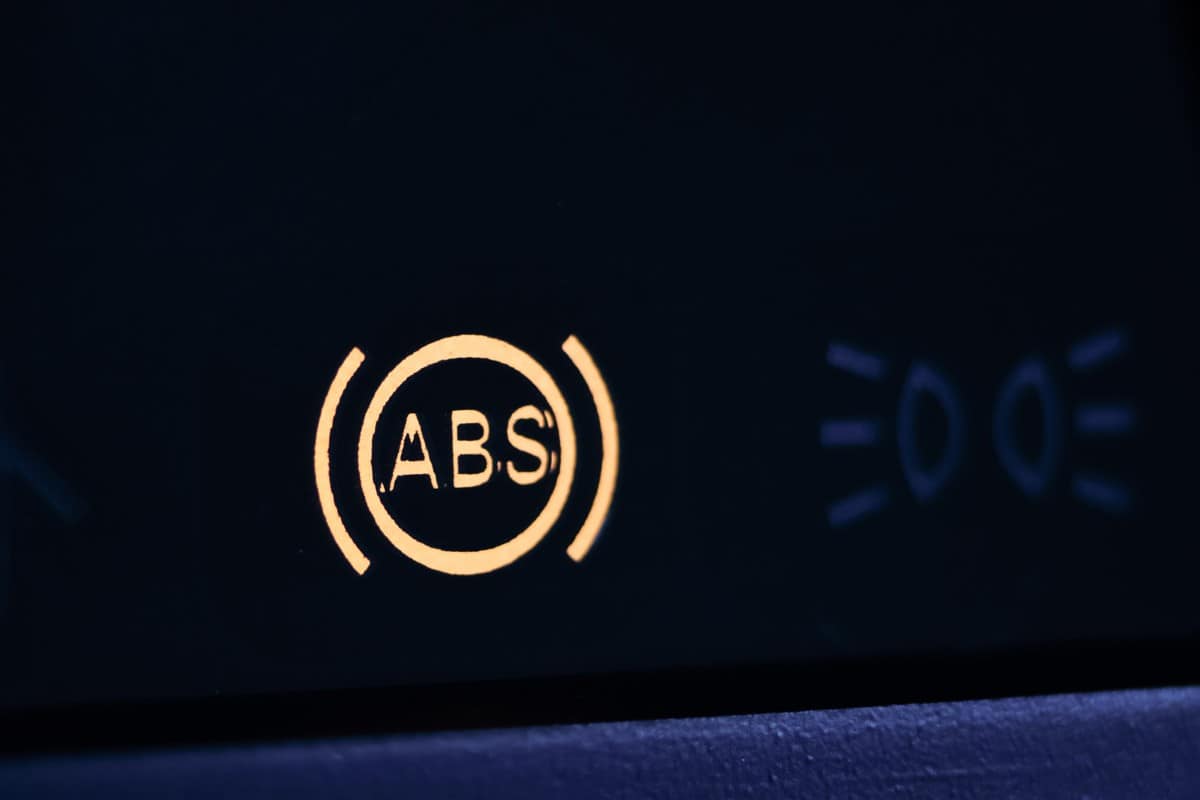
If you own a vehicle, then you're likely familiar with ABS. You're probably used to it and may not even realize it exists.
However, ABS is a vital safety device that reduces the likelihood of your vehicle going into skidding mode when you hit the brake pedal suddenly.
To achieve this, your vehicle uses sensors that detect when the brakes are applied and how hard they are applied. Then, the ABS kicks in and prevents the wheels from locking up totally during a sudden stop at high speeds.
This helps the wheels stay in contact with the road and improves maneuverability during panic stops.
In addition to helping prevent you from losing control of your vehicle, ABS also helps the tires maintain traction on the road. This helps reduce the chance of the tires sliding off the road.
The engine compartment is typically the location where you'll find the ABS. You can also find it somewhere in the brake system. As always, check your car manual, as there could be more than one place to find this information.
Here is a video showing how an ABS works:
Anti-Lock Brake System Removal: Pros And Cons
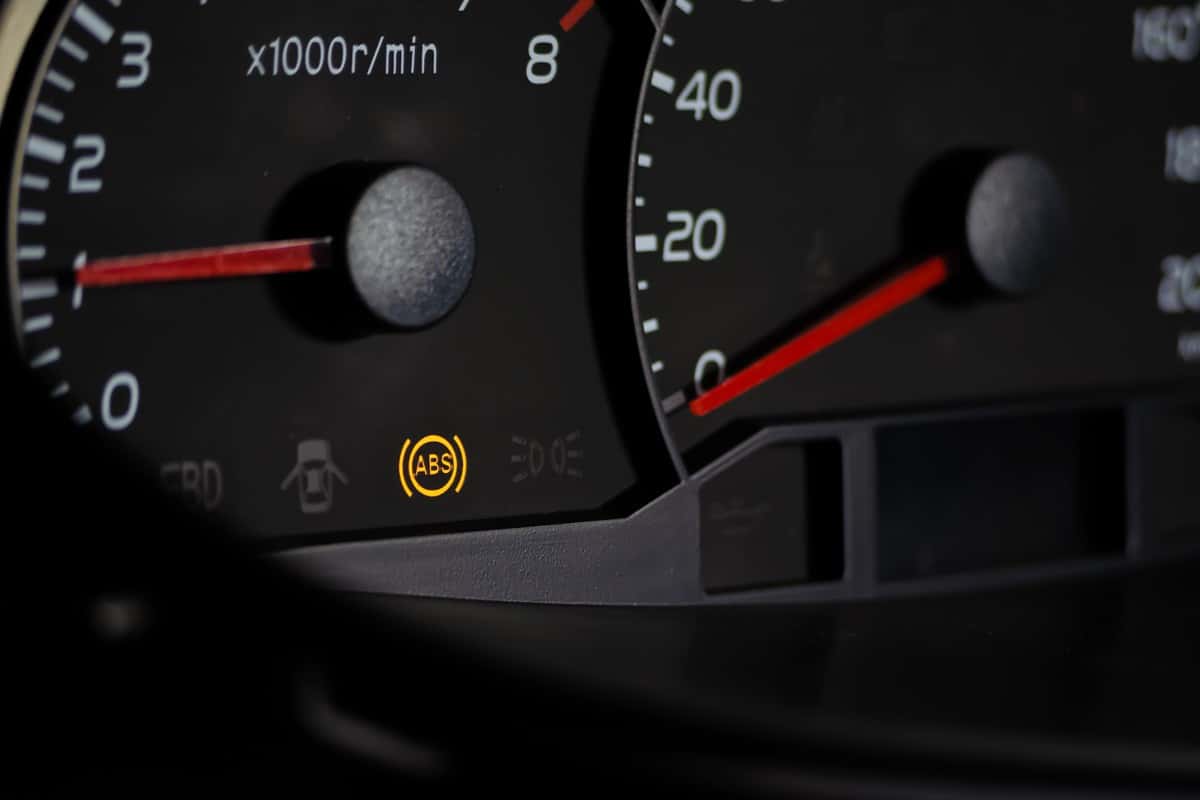
The anti-lock braking system (ABS) has been a huge advancement in braking technology, allowing the driver to brake better and control the car much better.
Now, it's time to discuss whether you should keep or remove it. What are the pros and cons?
Let's take a look at them.
Pros
1. Supplemental Braking Force
ABS helps in situations that may occur during a sudden stop or a quick lane change while the driver is turning the steering wheel at a higher speed.
It provides additional braking force and reduces the chances of your vehicle moving forward in a skid by gradually decreasing the rotational motion of the wheels.
2. Improved Traction
The best part of ABS is that it increases the control of the vehicle while braking. The system uses sensors to detect the slippage between tires and the road surface.
This helps engineers design a better traction control technology that can accurately calculate tire grip on the road, preventing loss of control during abrupt braking.
3. Lower Insurance Costs
As car owners, we are aware of the costs that are associated with car ownership. Aside from the maintenance and insurance costs, hidden fees can significantly add to our budget.
Anti-lock brakes help reduce the likelihood of a crash. For this reason, car insurance companies love them! You're most likely to get a lower rate if you have anti-lock brakes.
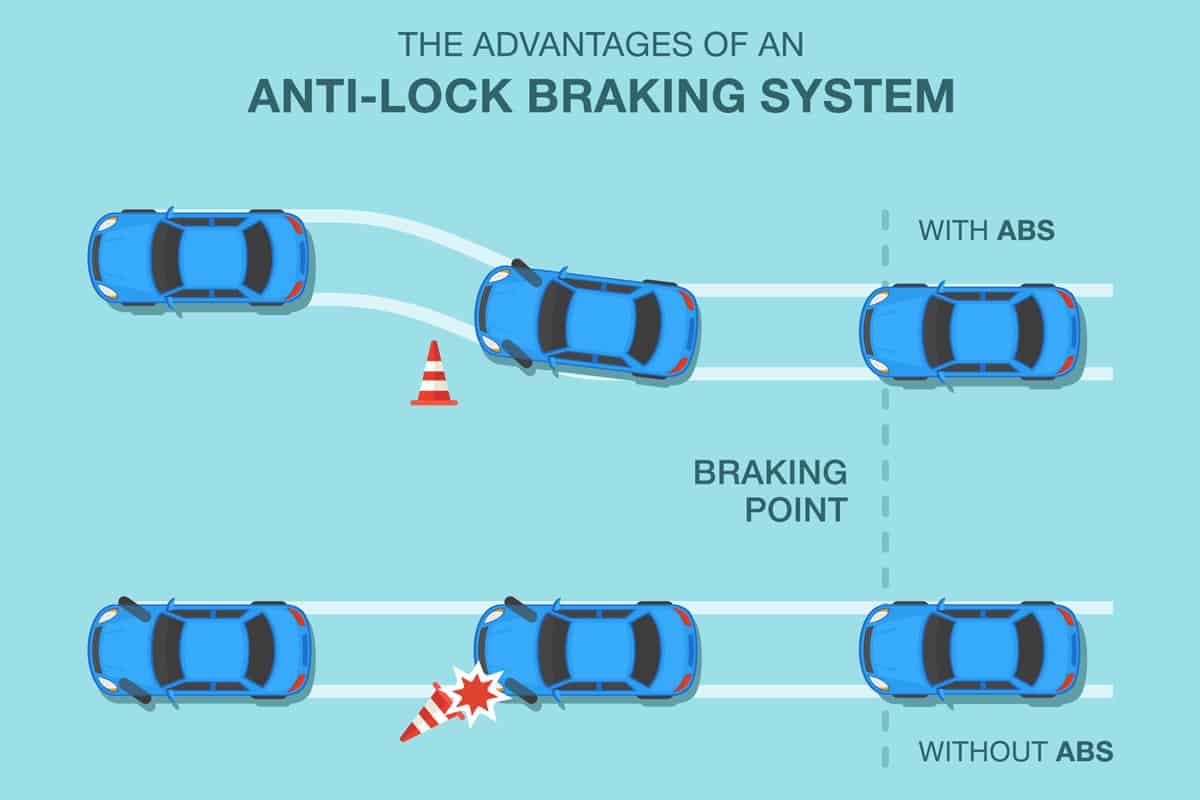
Cons
1. May Trigger False Alarm
We have all seen videos of cars skidding on the roads during snow storms.
The anti-lock brakes are equipped with sensors that detect whether or not the driver is applying the brakes to stop the vehicle. If the driver applies the brakes when needed, the ABS will activate and prevent the wheels from locking up.
However, the ABS is not perfect. If the road conditions are very slippery, the sensors may detect the slipperiness and misinterpret it as the driver braking.
In this scenario, the ABS will kick in before the driver has applied the brakes and will cause the wheels to rotate intermittently. This will cause the car to skid.
A Quora forum participant who happens to own a Honda Accord suggests disabling ABS during winter to prevent skidding from happening. To quote:
I do this every winter on our cars because if you know how to brake properly that system will send you farther down the road in icy conditions...
He also suggested removing the fuse instead of the entire ABS assembly, enabling the feature when needed is easy.
Here's a quick video showing how to remove the fuse of your ABS:
2. May Require Extra Maintenance
Like any component in your car, the ABS is an additional safety feature requiring routine checkups.
However, the extra upkeep cost is offset by the fact that this safety feature will prevent you from being involved in a potentially fatal accident.
You can save yourself from such a fate by having your ABS checked regularly.
How Long Can You Expect An ABS Sensor To Last?
It is typical for the ABS sensor to stop working after a few thousand miles. But if the ABS is malfunctioning, you will notice either the ABS icon is always lit or won't light up.
You may also notice that your car's ABS will activate more often after a few years of driving. It can also happen that when the sensor stops working, the ABS will not function properly, and it will not detect any brakes being applied.
You don't need to worry about replacing sensors for a while because they don't wear out as quickly as other vehicle parts. Most ABS sensors last for about 30,000 to 50,000 miles.
However, you should check the manufacturer's specifications and requirements to ensure the sensor will last as long as you want it to.
Why Is My ABS Light Coming On By Itself?
ABS (anti-lock braking system) is a technology that helps prevent wheel lockup in case of emergency. To activate ABS, you need brake fluid.
Brake fluid is a clear or light yellow liquid that works as a lubricant between the brake pads and rotors. It also helps protect the hydraulic system and keeps the system clean.
As a result, when there's a problem with the brake fluid level in the ABS fluid reservoir, you will see the ABS warning light come on.
See this brake fluid for ABS on Amazon.
How Much Is An ABS Replacement?
If you have an ABS speed sensor in your vehicle, the replacement part will likely cost you between$50 to $400. But if you have a high-end luxury vehicle, it can cost you more than $400.
ABS sensor prices are rising fast. The manufacturer tends to charge more for these parts in higher-priced vehicles.
Labor cost is also a factor, especially if your car requires a mechanic to install the part. The average labor cost of ABS replacement is about $300.
What Can Cause An ABS To Fail?
Most anti-lock braking system sensor failures happen because the sensors get clogged with debris.
If the debris gets into the sensors' wirings, it will get mixed with the electrical circuit and cause the sensor to malfunction and may send wrong signals to the ECU and could potentially trigger a false alarm.
The sensor may not be able to detect the exact amount of friction that occurs between the pads and the rotors.
Can You Clean An ABS Just Like Any Component In Your Car?
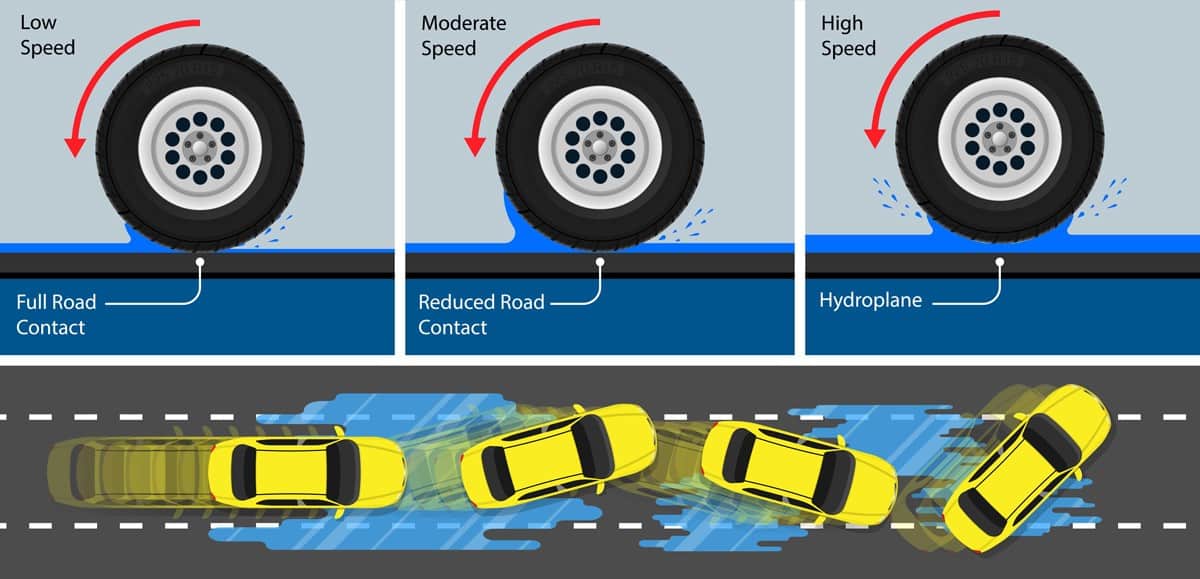
Over time, dirt and debris can get stuck on these sensors, causing them to malfunction. This will result in an inability to use this feature.
The anti-lock brake system (ABS) sensors are on each of the four wheels, particularly on the tires near the brake rotors and rear-end housing.
You can use a damp cloth or a damp sponge with mild soap to clean these sensors. Just remember to ensure that the sensor is completely dry before using it.
You should also make sure to clean the sensor regularly. It helps to keep the sensors working correctly.
Can An ABS Interfere With Transmission?
When you have a faulty ABS, the ECU may receive erroneous data, causing your transmission to lock up.
While the ABS itself will not cause any damage to the transmission, the symptoms of an ABS problem can include the transmission becoming sluggish and not engaging smoothly.
This may cause the vehicle to be less responsive or even cause the car not to be able to accelerate.
Is It Legal To Drive Without ABS?
After September 1, 2012, all new car models are required by law to have ABS. This will help to prevent accidents and injuries caused by drivers losing control of their vehicles.
ABS helps you to maintain control of your vehicle when driving in inclement weather, on slippery roads, or during emergencies.
In Closing
If you remove your ABS, there are many pros and cons to consider, including the safety of others on the road, and you don't want to be caught breaking the law.
If you're interested in keeping the safety of yourself and others, then do not remove your ABS.
Instead, learn more about your options and go from there. However, if you think your car will be without ABS for a few days because you're still waiting for the ABS replacement to be shipped to your door, it's best to use another car.
You might also like these helpful related articles:
Can You Use Engine Brake In Rain, Ice, And Snow?

